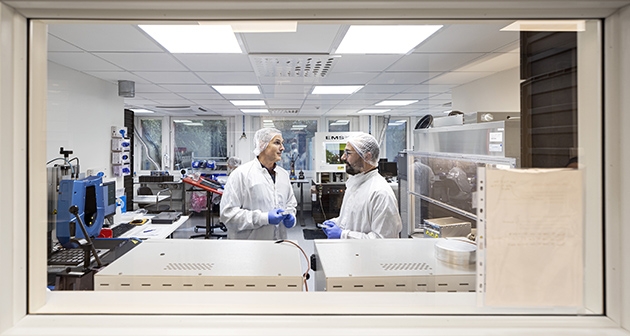New test offers faster cure for urinary tract infection
The patient gets the right treatment straight away, while unnecessary use of antibiotics is reduced. The world’s fastest antibiotic sensitivity test, developed by researchers at Uppsala University and the company Sysmex Astrego, will soon be launched.
Some 100 million urinary tract infections occur globally each year. As bacteria culture tests take time, it is often decided which antibiotics are to be given before a result has been received showing whether there is a bacterial infection and whether antibiotic treatment will therefore work.
Thanks to a new antibiotic sensitivity test developed following research at Uppsala University, it is now possible to analyse urine samples and obtain a result as to which antibiotics will be effective in less than 30 minutes.
“That’s the advantage of our test. After your first visit to the doctor, you’ll get the right treatment straight away with an antibiotic that will be effective against your bacterial infection,” explains Özden Baltekin, doctoral student at the Department of Cell and Molecular Biology and Director of Program Management at Sysmex Astrego, which manufactures the test.
Fastest in the world
The analytical tool consists of a cassette with a microflow chip loaded with different types of antibiotics. The urine sample is injected into the cassette, which is then inserted into an analysis tool consisting of a microscope and a computer, among other things. It is then analysed how the potential bacteria grow or are inhibited.
In contrast to the method used in healthcare today, whereby a culture is produced and colonies of cells are studied, this test permits researchers to see how individual cells grow. This is why the researchers' method can provide a result in such a short time – in fact, it is the world's fastest antibiotic sensitivity test to measure bacterial growth.
“Each cell division takes around thirty minutes, and at least twenty cell divisions are required to be able to see a colony. We look at each individual cell instead. If it has grown by more than 50 percent, we can see whether it has grown or not. We then look at an average of over a hundred individual bacterial cells,” explains Johan Elf, Professor of Physical Biology.
Thanks to the tool, analysis of the urine sample is fully automated; healthcare staff do not need to examine through a microscope as they get the result presented on the screen.
Many benefits of correct antibiotics
There is currently up to a 20 percent risk that the type of antibiotic given to a patient will not work. With this test, the risk of giving the wrong treatment unnecessarily can be avoided.
The method also paves the way for the use of antibiotics that have been taken out of use – currently, a certain type stops being used if resistance is higher than 20 percent.
“This is the major advantage – that our method once again enables antibiotics to which there is a high level of resistance to be used in patients for whom they are effective. In this way, we can also reduce the development of resistance,” adds Elf.
Major benefit to society
The test will soon be ready for launch, and Sysmex Astrego will start selling the test in Europe initially.
Do you think that healthcare operators will buy the test? Or will they find it cheaper to continue as they have done before?
“Naturally, change takes time. Now that it is possible to test, it is also up to the decision-makers to produce guidelines that prohibit unnecessary antibiotic use,” notes Baltekin.
“Until now, it has not been possible to establish such requirements because there was no quick way to analyse antibiotic sensitivity in urine samples,” explains Elf.
Although there is a certain cost associated with purchasing the test and the cassettes, they both believe that the benefits for the healthcare system in the long run could be huge.
“We must look at the overall benefit to society. The test leads to a reduction in unnecessary use of antibiotics, and patients don’t need to visit the doctor several times as a result of failed treatments,” notes Baltekin.
Sandra Gunnarsson
Still based in Uppsala
The method of analysis that forms the basis of the antibiotic sensitivity test was developed at Uppsala University. In order to produce a user-friendly test accessible to healthcare, Johan Elf, Özden Baltekin and Ove Öhman started the company Astrego Diagnostics AB. The company grew and was later acquired by the Japanese Sysmex Corporation in May 2022. The subsidiary Sysmex Astrego, which has around fifty employees, is still based in Uppsala where all production takes place.
In autumn 2022, Elf and Baltekin were awarded the Uppsala University Innovation Prize ‘Hjärnäpplet’ for developing the test.

